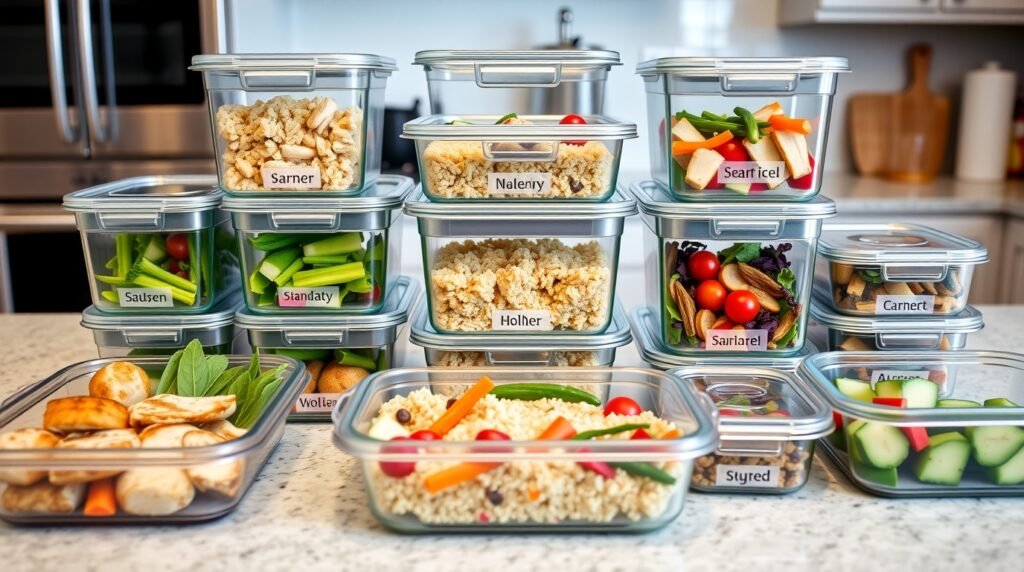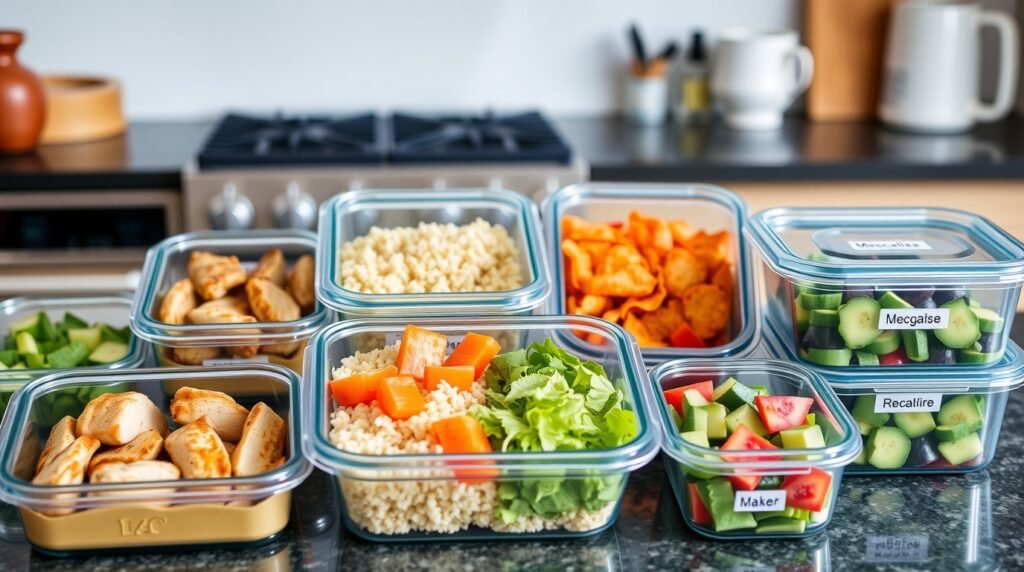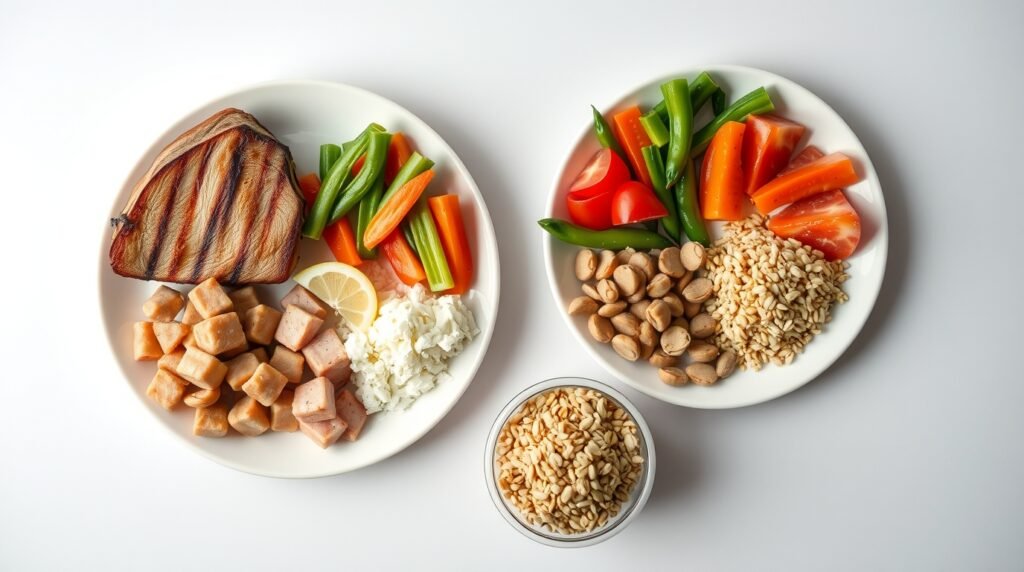
Natural Diet Plan for Weight Loss-How to Lose weight Fast Naturally with Good Eating habits
Healthy eating habits are a best and easiest way to lose weight naturally. Adopting a better diet not only can help you lose extra pounds, but also helps your overall health. Some simple tips to help you begin losing weight.
Focus on Whole Foods
According to Trevor, one of the most powerful habits is focusing on whole foods. These are whole foods like fruits and vegetables, lean meats, whole grains and nuts. You receive the essential vitamins and minerals from whole foods, even when controlling your calorie intake.
Plan Your Meals
Recipe Tips and Notes Meal prep is key to success. You are less likely to grab a snack or hit up the fast food joint if you plan your meals in advance. You might want to create a weekly menu like:
- Breakfast options include oatmeal or fruit smoothies.
- Salad or whole grain wrap for healthy lunch options.
- Dinner: A dinner with lean proteins and lots of vegetables.
- A healthy snack: yogurt or raw veggies with hummus.
Planning also helps to keep you organized and eating healthy more convenient!
Portion Control
Portion control can really affect your weight. With portions being larger than they need to be, eating too much is easy. Use small plates and bowls for portion control. This one easy fix can help you fill up without overdoing it. Also try to listen to hunger cues from your body — eat when you’re hungry and stop when you’re full!
Stay Hydrated
Drinking water has an essential role in losing weight. Our bodies even occasionally mistake thirst for hunger, making us reach for a snack. Day 3: Strive for at least eight glasses of water a day. You can also add herbal teas or infused water for variety. Your metabolism can keep your metabolism working and prevent making poor food decisions.
Mindful Eating
Here is another tip for you practice mindful eating – in order to enhance your relationship with food. That means enjoying your meals and being mindful of what and how you eat. Do not watch TV or use your phone while eating. Enjoy the flavor and texture of your food as well as the aroma. This consciousness can prevent mindless overeating and enhance your satisfaction during meals.
Limit Processed Foods
Many processed foods add sugar, fat and empty calories. These items can make a difference in ur wieght. Snack on fresh fruits or veggies, instead of packaged snacks. Swap sweetened beverages for water, herbal tea. Small changes can make a big difference to your health overall.
Incorporate Protein Into Your Diet
Eating protein can raise your metabolism and keep you full longer. Strive for lean sources of protein, such as:
- Chicken or turkey
- Fish, like salmon or tuna
- Beans, lentils or any legumes
- Eggs or low-fat dairy products
Eating a higher protein meal can help to control your appetite and cause weight loss.
Don’t Skip Meals
Missing meals promotes “gorging” later on the day. Instead, try to eat three balanced meals and two healthy snacks each day. This way you are keeping your metabolism moving, which should help prevent any cravings that can cause you to make unhealthy decisions.
Stay Active
While this article is about eating habits, keep in mind that exercise is an important aspect of losing weight. Aim for at least 30 minutes of exercise on most days of the week. And it doesn’t need to be high intensity — walking, biking or swimming works too. Discover the things you love and incorporate them into your life more often.
Be Patient and Consistent
I know “weight loss is a rollercoaster,” but I would add more to it in form of experimenting and consistency. Tiny, sustainable dietary changes are better than overhauls that may deliver quick results but can be tough to stick with. Record your progress and acknowledge small successes as you move forward.
These healthy eating habits are effective ways to lose weight naturally and can be integrated with your overall health. After all, all positive and change are good — choose what resonates with you! Your path to health may take some trial and error, but your weight loss routine should fit who you are in order to make it work.
Importance of Portion Control for Weight Management

For anyone who is looking to get their weight under control, whether that be lose weight or gain muscle, the importance of portion sizing cannot be understated. Learning to balance portion size will establish a clear pattern for healthy eating and makes weight loss aversion free. Here, we’ll explore the most important elements of portion control as it pertains to weight management.
The first rule of mastering portion control is understanding what a serving size looks like. A lot of people don’t realize how much they are eating and end up consuming too many calories in a day. Here are a few typical serving sizes to give you some more guidance:
- Fruits and Vegetables: Make sure to fill half of your plate with fruits and vegetables. A serving of fruit is usually about a medium apple or half a cup of berries.
- Grains: One serving of grains is usually one slice of bread, half a cup of cooked rice or pasta.
- Proteins A serving of meat or poultry is the size of a deck of cards, or the palm of your hand (about 3 ounces).
- Dairy One serving equals one cup of milk or yogurt, or one and a half ounces of cheese.
Control of portion size relates not only to the amount eaten but also to attentiveness when eating. Mindless eating, such as munching on snacks in front of the TV or mindlessly scrolling through the sights and smells at a buffet or party can all contribute to overeating. Here are some approaches to mindfulness:
- Slow Down: Take the time to chew your food rather than gobbling it up. This gives your brain time to send signals of fullness minus hunger to your stomach.
- Use Smaller Plates: Using plates can make your portion of food look larger, training your brain into thinking you are eating more than in actual danger not fattening up.
- Respond to Hunger: Pay attention to how you feel. Ask yourself it you are really hungry, or if you are just eating out of habitual boredom.
Another way to control the amount you eat is by keeping track of what you consume. This does need to be complicated. Here are a few simple ways to stay on top of things.
- Food Logs: Record every bite you ate throughout the day. It will make you more aware of your eating habits and where there’s room for improvement.
- Prepare food in advance: If you prepare your meals ahead of time you control the portion. Portion meals out in advance, and you’re less inclined to overserve yourself.
- Snack on Portions: If you normally snack from a package, take some time to portion out smaller bowls or bags of snacks so you’re not eating indefinitely.
Understanding how different foods make you feel is also a key part of portion control. Not all calories are equal. For example, high sugar or fatty foods can cause weight gain in small amounts. So concentrate on food which are nutrient dense and benefit your overall health. Here’s how to identify them:
- Focus on whole foods like fruits, vegetables, lean proteins, whole grains and healthy fats.
- Keep away from junk food as much as you can, most contain too much sugar and unhealthy fat.
- Opt for fiber- and protein-rich foods that leave you feeling full longer.
Remember that flexibility is key. Portioned meals permit some indulgences without total deprivation that can result in better adherence over the longer term. Instead of categorizing foods as “good” or “bad,” strive for balance. If you love and miss something special, take a small amount instead of depriving yourself completely. It is this mindful mentality, which prevents food from becoming the enemy.
Portion control might be a hard skill to learn, but the payoff is definitely worth it. It not only helps in losing weight, but it also makes you feel good about yourself. You can create a much healthier lifestyle that complements your natural weight loss journey by practicing awareness and by making informed decisions about portion sizes.
Unlocking the Secret of Nutrient Balance for Permanent Weight Loss

In order to start a healthy weight loss program you must learn the concept of nutrient balance. It’s not just a matter of scales. It depends on the type of thinning foods you eat – ones that help get your weight down or that simply subtract from your body without adding anything back in the way of nutrition and health. Here is how to concentrate on nutrient balance for successful weight Management.
The Role of Macronutrients
The macronutrient is the main source of energy your body gets and it’s divided in 3 groups: carbohydrates, proteins and fats. Both are important in maintaining your metabolic functions.
- We are indicator species as to what is going wrong with us, or right for that matter.Carbohydrates are our debate, eat massy carbohydrates such the starches and so on. They’re important sources of fiber, which help you feel full and keep blood sugar levels stable.
- Protein: Include lean proteins including chicken, fish, legumes and beans in your diet. Proteins play a pivotal role in muscle regeneration and growth, and they can keep you feeling full, preventing overeating.
- Fats: Good fats such as avocados, nuts and olive oil are necessary for hormone production good nutrient absorption. They can also curb your appetite, helping you adhere to your meal plan.
Understanding Micronutrients
Micronutrients — vitamins and minerals — are just as crucial, even if you have to consume them in smaller quantities. They are essential for bodily processes and the energy that keeps them functioning.
And eat a rainbow of fruits and vegetables to be sure you’re getting a variety of vitamins and minerals. For example:
- Vitamin C: A boost for your immune system, it’s contained in citrus fruits and bell peppers.
- Iron: Found in spinach and red meat and is essential for transporting oxygen through the blood.
- Calcium: From dairy or plant-based sources like almonds, it is needed for bone health.
Portion Control
Even clean and healthy food can cause you to gain weight if you eat more than what your body needs. Understanding portion sizes is essential. Here are some tips:
- Measure Portions: First, it’s best to use measuring cups or a digital kitchen scale when you’re just starting out.
- Mindfulness: Slow down while eating and focus on your body’s hunger cues. This can prevent overeating.
- Plate Method: Fill half your plate with vegetables, a quarter of it with lean protein and the other quarter with whole grains to keep portions in check.
Hydration
Hydration is also an important part of the nutrient-equality equation. Water is important for digestion, metabolism and regulating appetite. Our bodies sometimes do have a difficult time telling the difference between thirst and hunger, which can resultith in overeating.
- Drink Water, Especially Before Meals: This is one of the healthiest habits you can develop. It is also the easiest way to lose weight from water.
- Flavor your water: Lemon, cucumber, or fruit can make it more appealing without adding calories.
- Pay attention to what you eat: Aim for at least 8 cups (64 ounces) of water a day, increasing it as per your activity and climate.
Cooking Methods
How you prepare foods can make a big difference in their nutritional value. Choose healthier preparation techniques to retain nutrients and minimize additional calories.
- Grilling or Baking: These processes let fat drain off and assist in retaining moisture without excess oils.
- Steaming: This method retains the nutrients in vegetables more than boiling does.
- Steer Clear Of Fried Foods: Cutting out fried foods will help you lower the number of calories that you consume, as well as your consumption of unhealthy fats.
Establishing efficient, healthy eating habits that are based on nutrient balance allows you to naturally lose weight. Pay attention to macronutrients and micronutrients that you can add in your meals while focusing on portion sizes, also keep hydrated. By knowing about nutrient balancing and by making the right choices, you will find yourself working toward a goal of being thin and healthy.
Easy Meal Planning Ideas for Better Eating

Meal prepes is a game changer, meal preparation to help you live healthier. By scheduling and prepping meals in advance, you save time on rushed days and guarantee that you’re making healthy choices for your body. The following are some easy, but effective ways to plan healthier meals.
Plan Your Meals
The cornerstone of successful meal prep is being prepared. To make this not-so-fresh habit easier on you, spend small moments throughout the week meal planning. This helps you make smarter choices, and avoid impulse eating. When planning, consider the following:
- Balance Your Meals: Try to make a balance of proteins, healthy fats and carbs. Consider adding lean meats, avocados and whole grains.
- Use What Is in Season: Fruits and veggies are usually at their freshest and cheapest when they’re in season. They come in different flavors.
- Be Realistic: Cook what you have the skill to cook — and the time. Simple foods are delicious and healthy.
Batch Cooking
Batch cooking is simply preparing a lot of something at the same time. This can be extremely powerful as an aid to healthy eating. Here’s how to do it:
- Cook a Protein: Grill or bake some chicken breasts, turkey, or tofu. Keep them on hand in your fridge to use through the week.
- The Grains: Cook up a large batch of quinoa, brown rice or whole-wheat pasta. These can transform into the base for myriad meals.
- Chop Vegetables: Wash, chop and store an assortment of vegetables in containers. That will make it easier to whirl them into a stir-fry or salad once they’re home.
Use Versatile Recipes
If you select recipes that are versatile, you can mix things up throughout the week without becoming bored. Here are some ideas:
- Stir-Fry: Swap out the protein, veggies and sauce to mix things up.
- Rice Wraps and Sandwiches: Kids like different fillings such as hummus, avocado or slices of meat.
- Salads: Begin with your choice of greens and combine them with a variety of toppings, dressings or protein for something unique at each meal.
Storage Solutions
With the proper storage, meal prep becomes easier and your food remains fresh. Consider these tips:
- Clear Containers: With clear containers, you can see what’s inside easily and pull a meal or ingredient together more quickly.
- Label, Label, Label: Jot the contents and the date you made them on your jars to help you monitor their freshness.
- Invest in some Good Quality Containers: Airtight containers can also prevent your meals from going stale or off.
Stay Organized
Plan and organize Plan ahead and make sure things run like clock work. Here are a few tactics to help you think through:
- Create a Meal Prep Day: Designate one day of the week to cook and portion your food. Sunday is good for many, but pick what works best for your schedule.
- Take Inventory: Keep track of what you have in your pantry, fridge and freezer. Having a sense of what you have on hand now will also help you plan more effectively.
- Make a Meal Prep Playlist: Although you can’t bring Netflix into the kitchen, music and podcasts are usually fair game.
Stick to Simple Snacks
Eating healthy snacks can help ensure you have energy and won’t overeat at your meals. Some easy to prepare snacks include:
- Fruit and Nut Mixtures: Add nuts to dried fruit for a convenient, nutritious portable snack.
- Veggies and Hummus : Have them cut up some vegetables like carrot sticks, cucumber or bell pepper with hummus for a tasty crunch.
- Yogurt Parfaits: Alternate between granola + fresh berries for a quick and healthy snack.
Start doing meal prep and you will find yourself eating more healthily, which is good for your whole being. Food aside, remember: preparation isn’t just about food; it’s also about giving yourself the knowledge and tools to make healthy choices with ease. Just like anything else, with repetitive practice and variety, meal prepping can turn to be a very cool thing you do that will drive you closer to your health objectives in an organic way.
The Role Of Hydration In Your Weight Loss Plan

Focusing on hydration is just as important for weight loss as keeping an eye on what you put in your mouth. Water is underestimated but crucial for your general health and it can also help you lose weight naturally. How does hydration influence weight loss and why it is so important Knowing the effect of hydration on weight loss can help you to lose more.
But before we get to that, here’s how staying hydrated can contribute to maintaining a healthy weight:
- Increases Metabolism: Drinking enough water may make you feel fuller longer, which could help with weight loss or maintenance. Some studies suggest plain water can multiply your resting metabolic rate by about 30 percent. That way, your body can burn more calories even while you’re sitting on the couch.
- Curbs our Appetite: Our body tends to misinterpret dehydration for hunger. This way, drinking enough water will also help a person avoid false hunger pangs. Having a glass of water before meals may make you feel fuller, causing you to eat less.
- Aids Digestion: Staying hydrated can reduce the chances of bloating and constipation by softening waste, allowing for optimal transportation through your digestive system. This can minimize bloating and that puffed up feeling from a too-full tummy.
- Improves Exercise Performance: Good hydration improves exercise performance. Good hydration also keeps your muscles and joints in tip-top condition, so you can work out without pain.
- Aids In Fat Loss: You need water to be able to undergo lipolysis, the process of fat breakdown. Proper hydration allows the body to use fat as fuel more efficiently, which means you go skinnier!
Simple hydration protocols can play a huge role in keeping the weight loss process on track:
- Keep a Water Bottle Handy: You’ll always have a one-reminder at your side to drink water enough during daytime. Six to eight cups of water is a decent target for the average person, but that may need adjusted based on how much you’re active.
- Set Reminders: Use your phone to remind yourself every now and then to take a sip of water. This can assist you to develop a routine for repeat drinking and keep drink throughout the day.
- Infused Water: If plain water is just too dull for you, infuse some slices of cucumber, lemon or mint into it to make drinking water more fun. This makes you feel like drinking more.
- Watch Your Intake: Keeping track of your water consumption can help you remain accountable. There are also apps or simple logs that can help you visualize how much liquid you’re getting per day.
- Monitor Your Urine Color: A quick and easy way to gauge your levels of hydration is by taking a look at the color of your urine. If you’re urine is a pale yellow, all means that your well-hydrated and ready to rock.
When we consume water during the day is important to consider. Hydration after a workout, for example, is important to recovery. Furthermore, staying hydrated could decrease fatigue during an exercise session. It’s just as crucial to modify your water consumption according to other environmental factors, such as heat and altitude — both of which can make you need more liquids.
If you are eating important hydrated foods as well this can also be very helpful. Foods like cucumbers, watermelon, oranges, and spinach are high in water content and can help with your hydration overall as well as adding other beneficial nutrients and fiber.
Plus, don’t count on sweetened drinks or juice for hydration. These could be adding empty calories which cumulatively are leading to weight gain and not loss. Water’s your best bet for a healthy low-calorie beverage that keeps you slim.
Hydration is a key weapon in your weight loss arsenal. Drinking enough water by intentionally practising habits and knowing how your body feels when you are hydrated will help you in achieving your weight loss objectives. The latter not only helps you lose weight, it also keeps your energy up and improves your overall well-being. Because remember all, a hydrated body is a healthy body!
Conclusion
Of course, developing successful healthy eating habits isn’t only about losing weight; it is about being able to maintain good health. If you concentrate on portion control, you can eat your favorite foods with no sense of having overeaten, and it will be easier to keep a healthy weight. Nutrient balance is also important to grasp, because it helps ensure that your body’s getting the vitamins and minerals it needs – while still helping you reach a healthy fat-loss goal.
Prepping your meals can make a huge difference, as it puts healthy meals in front of – and makes them harder to avoid than – unhealthy snacks. Honing in on simple strategies such as batch cooking and food prep helps put healthy eating within reach, where it isn’t time consuming either.
Keeping your body hydrated is just as important as losing weight itself. Water not just helps with digestion but also helps you stay satiated much longer so as to prevent mindless munching. Don’t forget, focusing on your hydration can also help working towards booting up your metabolism and increasing energy levels to make this journey more efficient for you.
It takes patience and discipline to develop these habits, but every little bit adds up. Incorporate these habits into your daily life, and let nature take its course for healthy, permanent weight loss. Instead, concentrate on building healthy habits that you can practice day in and day out, and in no time at all, clean eating will become such a natural part of your life—even something that you look forward to. Enjoy the ride, and good things will come into your life!
1 thought on “Effective Healthy Eating Habits To Lose Weight Naturally”